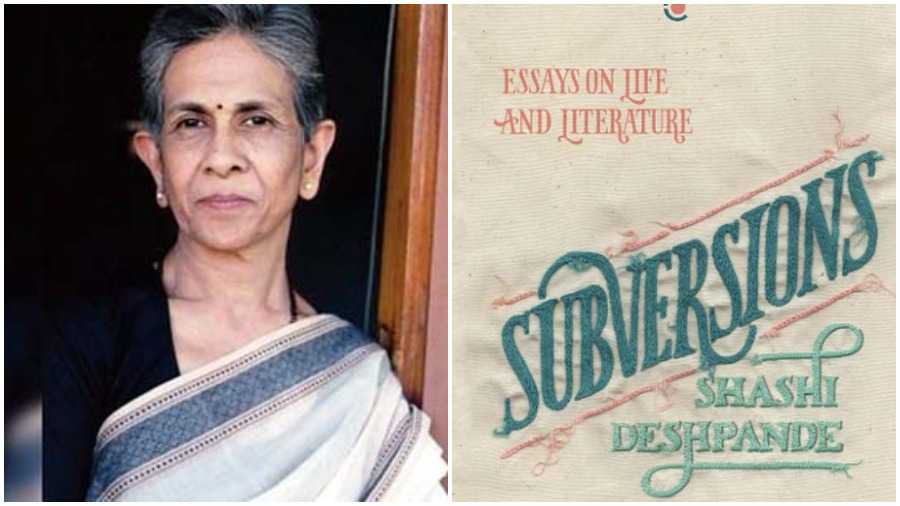Shashi Deshpande, in the course of her decades-long career, has written 11 novels, two crime novellas, few short story collections, a book of essays and four children’s books. She is the recipient of the Sahitya Akademi award and the Padma Shri in 2009. Over the years, experiencing the journey of a writer has allowed her to form thoughts that have now culminated into a book of essays titled Subversions: Essays on Life and Literature (Context; Rs 599) compiled and edited by Nancy E. Batty and Dieter Riemenschneider. What emerges from this book is a strong opinion on life and the act of writing. Broadly divided into five sections –– The Role and Identity of the Writer; Women, Writing and Empowerment; Writers, Readers, Critics and Reviewers; Texts and Genres and Places Recalled and Writers Remembered.
In the first section, her essays explore the idea of a writer as an activist marking out the precise dilemma of feelings of undue privilege that can often be associated with the comfort of writing. She speaks of the mystery of the source of someone’s writing, gender identity in writing, and the idea of a nation in the writers’ mind. With a simple approach, she speaks of the act of an author returning an award to make a political statement or to bring attention to an important subject. Her essay titled Why Read? is an important read questioning the existential crisis that can often ail fiction writers.
In her section about women, writing, and empowerment she throws a curious light on people of marked influence who choose to denounce the term ‘feminism’ by equating the movement to hatred for men. What prevents educated human beings with clout to gather sufficient knowledge and making informed choices? “What saddens me is that women who make such statements are themselves splendid examples of what women can achieve against many odds” she muses ruefully. She speaks of empowerment that comes at the cost of disempowering another, the strength that women need to deal with problems of quotidian life, and the divine strength that arrives in a moment of desperation. Deshpande effortlessly shares her thoughts on feminism and engaging with women authors. She probes thoughts and ideas that a conscious reader will find familiarity with and that is what makes this book of essays feel close to you.
In her 2020 essay On Writers, Reviewers and Critics, she explores the idea of a defenseless writer in front of an armed and spiteful critic. The burgeoning space of English writing in India demands the need of knowledgeable and authoritative critics who can substantiate their judgement with erudition. The final section Places Recalled and Writers Remembered is a potpourri of thoughts and people as witnessed and experienced by the author. She writes of the worship of elephants in a temple in Tirur in Kerala attended by authors and editors all around. She maps the city of Bangalore in her own inimitable style and the book also compiles reviews of certain books like The Life of Harishchandra by Raghavanka, translated by Vanamala Vishwanatha, Filomena’s Journeys by Aurora Maria Cuoto and Distant Traveller by Attia Hossain. Her nuanced reading of these books helps throw light on Deshpande as someone whose understanding of texts is severely influenced by her love for words. One is reminded of Joan Didion’s thoughts when she speaks of a writer being an observer more than a thinker –– one who puts words to the world unfolding around in their periphery. This is a book that is a lesson on a lot of things but mostly the art of being a conscientious being in this world.
